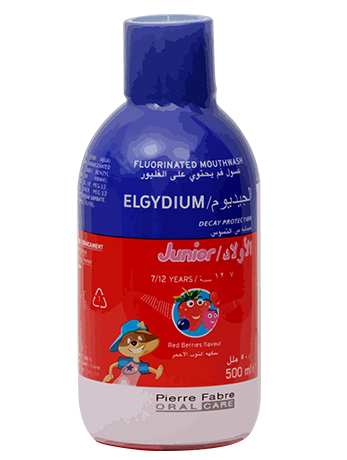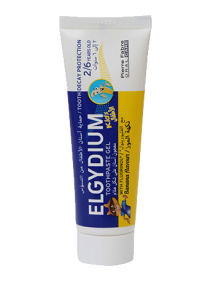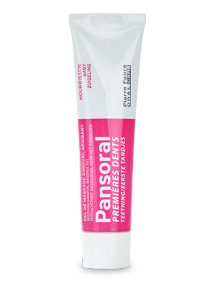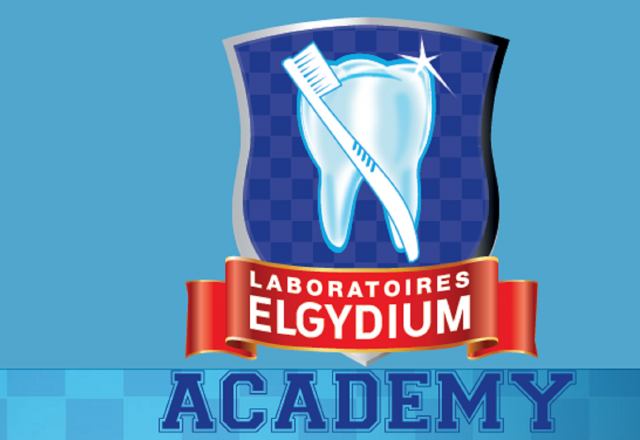
ELGYDIUM JUNIOR Mouthwash
COSMETIC
ELGYDIUM JUNIOR mouthwash is designed to prevent tooth decay in children aged seven to twelve. The Fluorinol® and siliglycol allow up to five times more fluoride to bind to the tooth enamel from the first minute, with longer-lasting effects. The enamel is strengthened and the growth of bacteria responsible for tooth decay slows down. Use in addition to toothpaste for enhanced oral hygiene in areas that are hard to reach with a toothbrush.
Available in pharmacies and drugstores in KSA, Kuwait, Jordan and Bahrain.
500 ml bottle with measuring cup
Product advantages
- Ideal complement to brushing
- Sugar-free
- Alcohol-free
Effective for
- Tooth Decay in Kids
Recommended for
- Juniors
How to use
Use morning and evening after brushing. Rinse around the mouth for 30 seconds with 10 ml of mouthwash (red berry flavour)
Professional opinion
The alcohol-free ELGYDIUM JUNIOR mouthwash allows the fluoride to bind to children’s teeth more effectively: five times more fluoride taken up from the first minute of brushing. The siliglycol also forms a protective film that prevents bacteria from colonising the mouth and keeps the fluoride on the enamel for longer, even after rinsing. The red berry flavour is popular with children.
Composition
Fluorinol® (nicomethanol hydrofluoride, 250 ppm fluoride ions),
- Binds firmly to the enamel to help remineralise, strengthen and protect the teeth.
Siliglycol (PEG-12 dimethicone)
- Film-forming agent that promotes fluoride take-up by the enamel, even after rinsing.
Clinical results
- Nicomethanol hydrofluoride (Fluorinol®) helps to remineralise and protect the tooth enamel. It helps the enamel take up five times more fluoride, from the first minute of brushing, compared with a standard mineral fluoride (1). This fluoride then helps remineralise the enamel and leaves it more resistant to the acid attacks that cause tooth decay.
- Siliglycol (PEG-12 dimethicone) is a film-forming agent that prolongs and promotes fluoride take-up by the enamel, even after rinsing (2).
(1) L. Jung et al. Rôle du nicométhanol dans le transport d’ions fluor pour favoriser la prévention des caries [The role of nicomethanol in the transport of fluoride ions to promote tooth decay prevention]. (in vitro test)
(2) Lacout et Al. Effets d'agents filmogènes sur la fluoration d'une apatite analogue à l'émail dentaire [Effects of film-forming agents on the fluoridation of apatite analogous to dental enamel].




